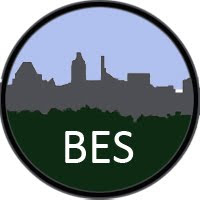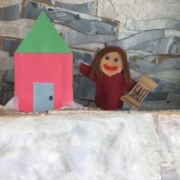Congratulations to our 2020 Data Jam Winners!
The Baltimore Data Jam Competition – Accessible science
This year saw the 7th Annual Baltimore Data Jam Competition. Each year I look forward to seeing the variety of student projects that both describe a local socio or ecological data set and communicate that data in a creative way. We’ve seen submissions from original songs and song parodies to stop motion animation, physical models and children’s books to comic strips and powerpoint presentations. This year, the top project was awarded to a middle school team who combined creative story telling with puppetry and low cost but high impact set changes. This team chose a data set about chloride in streams, describing in their detailed report how road salt has raised the salinity of our freshwater streams, all to the detriment of our local aquatic species.
We’ve always celebrated the Data Jam Competition in one way or another. During our early years, we held in-person award ceremonies where students could display their projects on a tri-fold board and receive their awards in person. As participation waxed and waned over the years, we moved to an online celebratory format announcing the winning projects on our website and mailing certificates, award checks and other prizes to the winning team members. This year, in what may be our final Baltimore Ecosystem Study Data Jam Competition and within an unprecedented at-home academic setting, we had just a handful of entries. But, like in any other year, I smiled as I read through their reports and beamed as I viewed their creative projects. These students clearly learned a lot, had fun and put their best foot forward in what I consider a very unique-style competition.
Perhaps what I’ve enjoyed the most over these 7 years, is meeting the students participating in the competition. For many, they participate to earn credit for a class assignment. But for others, their love of nature and desire to learn and compete drives them to participate. For this year’s top project, the participants explained: “It was good to have an opportunity to be creative and make art. It was also very interesting to do a science project about Maryland, as none of us had ever done one before, and learning about where you live and what is going on is always for the better.”
I couldn’t agree more.
Congratulations to our winning teams!
Bess Caplan, BES Ecology Education Program Leader
Outstanding! $300
ICE – This is A Salt to the Environment!
Etta Applefeld, Zoe Hong, Margaret Schmitz, Roland Park Elementary/Middle, Grade 8
Honorable Mention! $150
Chloride Tales
Cecelia Reichelt, Audrey Weiss, Roland Park Elementary/Middle, Grade 8
Honorable Mention! $150
Annihilators – Where Does the Poop Go?
Kelsey Bista, Akela Baltimore, Grade 11





